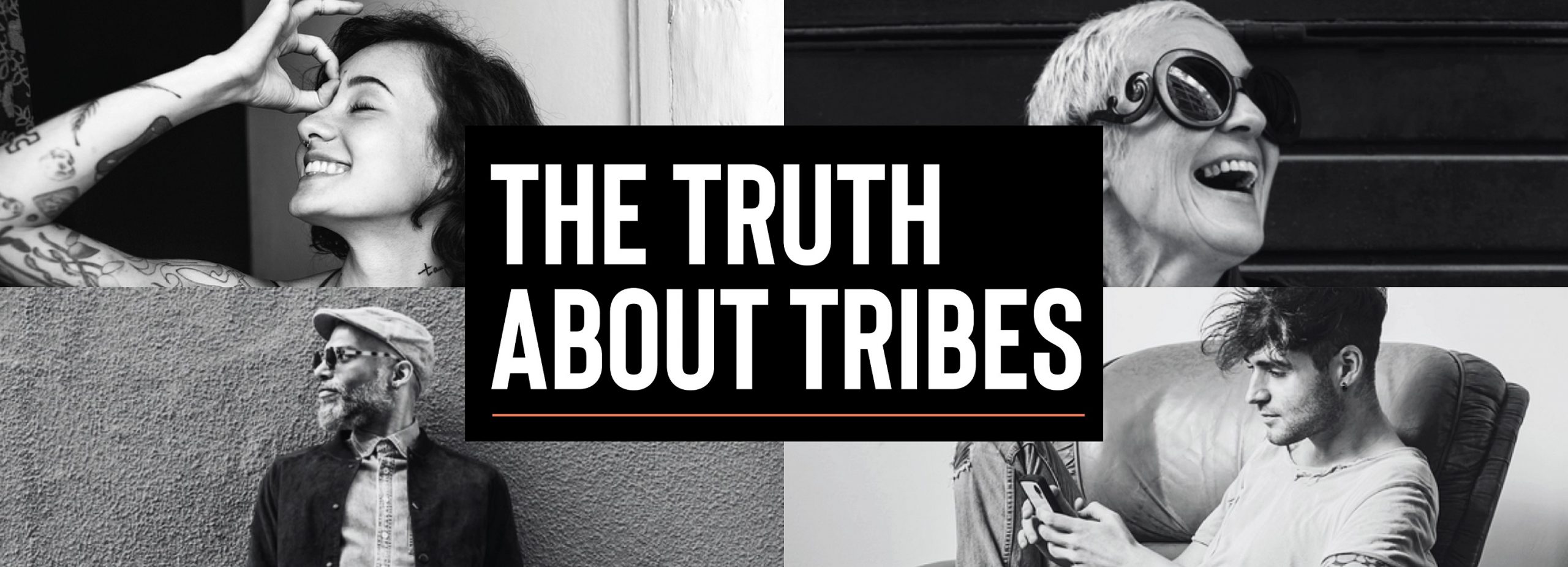
The Truth About Tribes
Scrap the Generation Gap, why we are all more on the same wavelength than you think!
Open a newspaper, scroll through social media or listen to workplace chatter and the topic of the generation gap is everywhere. From the Generation Z ‘quiet quitting’ trend to the Millennial Managers memes and endless media articles on the rise of ‘5G’ workplaces – what damage is this narrative doing to the way people view the world of work?
We now have five generations in the workplace, and if you believe everything you read, they are more divided than ever. However, we have taken a deeper look at the evidence, and the 5G’s might be more on the same wavelength than we think.
Motivational behaviours tell us so much more about the generation than the year they were born. Having worked in marketing for decades, we’ve seen generational consumer personas become tired and out-dated – if a 60-year-old and an 18-year-old can wear the same pair of Dr. Martens and enjoy the same soft drink, then why do we think people behave differently at work?
Employers are still feeling the ripples of the pandemic ‘workquake’, and trust in them is low, with 61% of employees feeling that their employer cannot be trusted to be honest with them.
Unity within workforces must be strengthened if we are to see a boost in team engagement and productivity, and making sweeping assumptions about employee motivations will delay this much needed cohesion.
The workplace division is present at every level, as recent research by LinkedIn found that only a fifth of Gen Z’s have spoken to a colleague over 50 years old in the last year, while 44% of over-55s have avoided having conversations with the youngest generation.
To try and deconstruct some of the barriers between generations, we have delved into the headlines and the data, and have identified several common motivators emerging in today’s workplace that are not divided around age.
Kari Owers, Founder at O agency, explains: “Take activism for example – if you asked most people they’d maybe say the younger Gen Z is known for their outspoken views and desire to pick careers based on their personal beliefs and values – but actually its quite an age agnostic tribe.
“Several generations have started choosing a business for its values and purpose since the pandemic ‘workquake’ – driven more by the impact they can have rather than just their job title or salary. They are seeking out DEI and ESG credentials and fair practice, based on a growing on mistrust of big business and they have a new ability to speak out publicly if they don’t like the decisions made by their employers, thanks to social media.
“Whilst commonly associated with younger Gen Z employees, this attitude is growing amongst older workers with the highest increase in workplace activism amongst Boomers. Albeit they don’t always take to social media, they are growing in their confidence to callout management for bad practice, and Millennials are the highest-ranking generation to engage with co-workers on important societal issues.”
Freedom and flexibility are also a multi-generational demand nowadays, says Owers: “It’s not just the TikTok generation that want the freedom to have a portfolio career, older workers have embraced freelancing to make extra income or simply enjoy the variety. Generation X (along with Baby Boomers) make up almost half of freelancers, with 48% in the 40-49 or 50-59 age brackets and 40% of Gen Z workers are combining at least two roles and 71% of millennial workers say the pandemic made them ‘rethink the place that work should have in their lives’.
“Companies actively seeking skills and experience may have to rethink their recruitment and find new ways they resource their business with this top talent and workflow models will need to change to allow people freedom to move between departments and projects if they are to retain them.”
We have teamed up with Duo Global Consulting to launch a new approach to people marketing. One that uses creative thinking blended with behavioural data to take a more nuanced approach and focus on what binds people together at work, not what makes people different.
Laura Weaving, CEO at Duo Global Consulting, a firm that provides human behaviour and people performance consulting said: “According to over 5,000 behavioural studies we’ve done with individuals across age groups in many organisations, we believe that the focus on multi-generational management has been a bit of a misnomer. This has led some businesses to make sweeping assumptions that age impacts key behaviours, instead of considering simply what motivates them.
“We need to look at our workforce as individuals, not age brackets and to develop a multi-dimensional brand communications strategy that takes into consideration their motivators such as their attitude to change, or preference for affiliation over power, or their preference to work alone for example.
“It’s not about individualising every piece of comms; it’s about not getting blindsided by so-called “generational differences” and appreciating the reality of your workforce.
“By understanding your team better, you can work out who you want to attract based on the behaviours and values of your best people, not hire simply on hard skills and experience – it opens up a much richer way of marketing your business and finding the right ‘tribe’ for you.”
If you’re interested in a discussion with our People Brand Strategy team, please visit our website or email kari@o.agency.
Data sources
These insights have been derived from a range of trusted data sources including: Edelman Trust Barometer, Deloitte, Linkedin, Gartner, Kantar, and the Gov.uk Future of Work Report.


